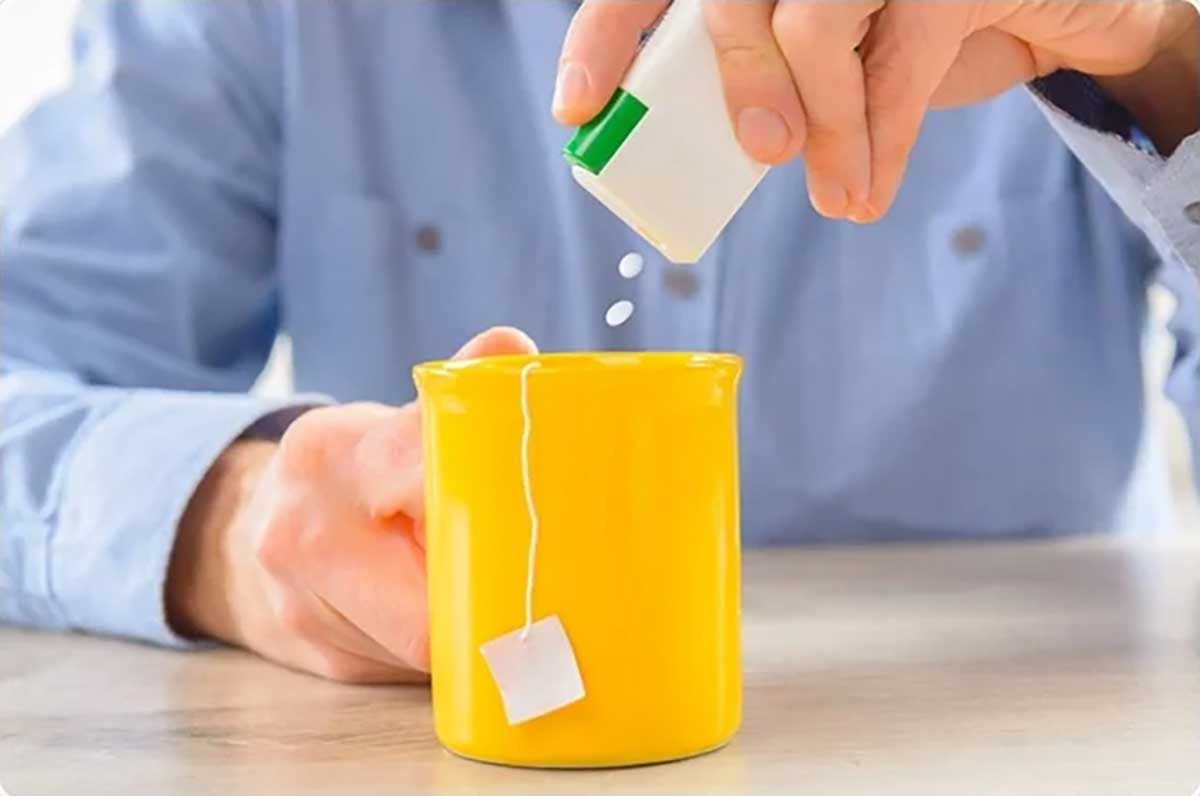Are sweeteners any good?
A low-calorie sweetener called xylitol used in many reduced-sugar foods and consumer products such as gum and toothpaste may be linked to nearly twice the risk of heart attacks, stroke and death in people who consume the highest levels of the sweetener, a new study found.
"We gave healthy volunteers a typical drink with xylitol to see how high the levels would get and the (levels of xylitol) went up 1,000-fold," said senior study author Dr. Stanley Hazen, director of the Center for Cardiovascular Diagnostics and Prevention at the Cleveland Clinic Lerner Research Institute.
"When you eat sugar, your glucose level may go up 10% or 20% but it doesn't go up a 1,000-fold," as the xylitol levels did, said Hazen, who also directs the Cleveland Clinic's Center for Microbiome and Human Health.
"Humankind has not experienced levels of xylitol this high except within the last couple of decades when we began ingesting completely contrived and sugar-substituted processed foods," he added.
In 2023, the same researchers found similar results for another low-calorie sweetener called erythritol, which is used as a bulking sugar in stevia, monkfruit and keto reduced-sugar products.
Additional lab and animal research presented in both papers revealed erythritol and xylitol may cause blood platelets to clot more readily. Clots can break off and travel to the heart, triggering a heart attack, or to the brain, triggering a stroke.
In the new study on xylitol, "differences in platelet behavior were seen even after a person consumed a modest quantity of xylitol in a drink typical of a portion consumed in real life," said Dr. Matthew Tomey, a cardiologist at Mount Sinai Fuster Heart Hospital in New York City, who was not involved in the study.
Some 61% of American adults will have cardiovascular disease by 2050, according to a recent prediction by the American Heart Association. Reducing clotting activity is a key treatment used by cardiologists, so any additional clotting in platelets is a bad sign, said Dr. Andrew Freeman, director of cardiovascular prevention and wellness at National Jewish Health in Denver.
"When someone has a heart attack, we give them aspirin or drugs like clopidogrel, or Plavix, to counter platelet activity. These sugar alcohols appear to be enhancing platelet activity, which is concerning," said Freeman
As sweet as sugar with less than half the calories, xylitol is often used in sugarless gum, breath mints, toothpaste, mouthwash, cough syrup and chewable vitamins. It is frequently added in larger quantities to candy, baked goods, cake mixes, barbecue sauces, ketchup, peanut butter, puddings, pancake syrup and more.
Xylitol is a sugar alcohol, a carbohydrate found naturally in foods such as cauliflower, eggplant, lettuce, mushrooms, spinach, plums, raspberries and strawberries. However, the amount of xylitol found in such natural sources is tiny, Hazen said.
"If you actually do the calculation, it literally takes a tonnage of fruit to be equivalent to one diabetic cookie that can have like nine grams of xylitol, which is a typical label amount," he said. "It would be like eating salt at the level of a salt lick."
For commercial use, however, xylitol is made from corncobs, birch trees or genetically engineered bacteria.
"It's sold as a so-called natural sweetener, and because xylitol doesn't spike blood sugar levels, it's also marketed as low carb and keto friendly," Hazen said.
"Xylitol is cheaper to make than cane sugar and so more and more keeps getting incorporated as a sugar substitute into food. Some 12-ounce drinks that use xylitol as a major artificial sweetener can contain 30 grams or more," he said. "You can even buy it in bulk at the grocery store where you're told to use as a one-to-one substitute for sugar in home cooking."
For the new study on xylitol, the results were basically the same — people with the highest levels of xylitol compared to those with the lowest levels had nearly twice the risk of heart attack, stroke and death, Hazen said.
The World Health Organization warned consumers in 2023 to avoid artificial sweeteners for weight loss, and has called for additional research on the long-term toxicity of low- and no-calorie sweeteners, the study said.
https://edition.cnn.com/2024/06/06/health/xylitol-heart-attack-stroke-wellness/index.html

